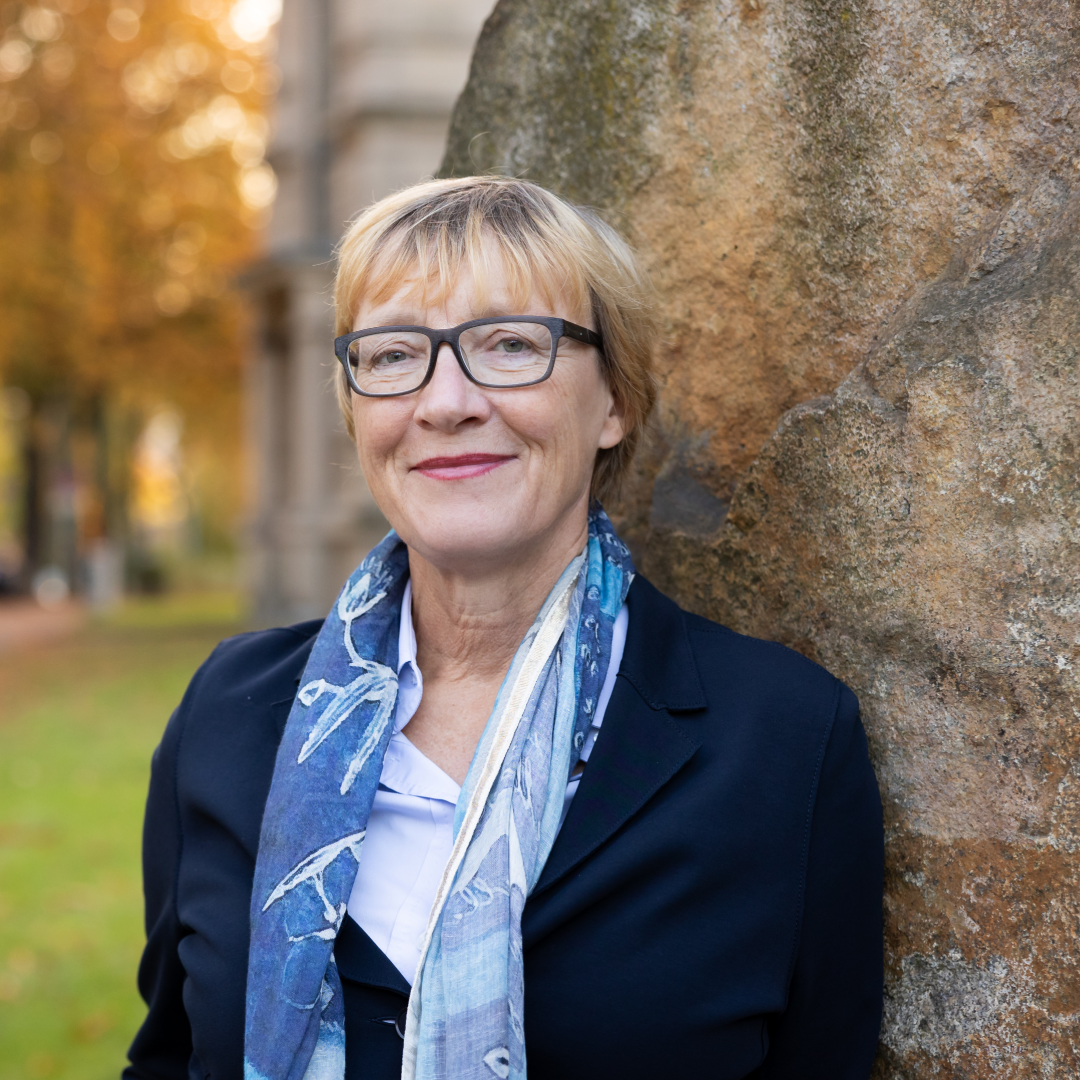Unser Wissenschaftlicher Beirat
Beratend zu unserem Projekt „Erfolgsfaktoren digitaler E-Partizipation“ steht der wissenschaftliche Beirat, der sich aus renommierten Experten verschiedener Fachgebiete zusammensetzt. Der Beirat spielt eine Schlüsselrolle in der Gestaltung, Durchführung und Evaluation unserer Forschungsaktivitäten, um sicherzustellen, dass unser Projekt wissenschaftlich fundiert und praxisrelevant bleibt.
Aufgaben und Funktionen des Beirats:
-
Fachberatung: Der Beirat bringt tiefgreifendes Wissen und spezialisierte Erfahrungen ein, die für das Mapping und die Analyse digitaler Beteiligungsangebote unerlässlich sind. Durch regelmäßige Beratungen und strategische Empfehlungen unterstützt der Beirat unser Team dabei, diesen spannenden Komplex tiefer zu beleuchten.
-
Qualitätssicherung: Mit einem Auge für Detail und methodische Genauigkeit hilft der Beirat uns, die hohe Qualität unserer Forschung zu wahren und kontinuierlich zu verbessern. Dies umfasst die kritische Überprüfung unserer Ansätze und Ergebnisse sowie die Förderung wissenschaftlicher Exzellenz.
-
Vernetzung und Ressourcen: Die Beiratsmitglieder nutzen ihr umfangreiches Netzwerk, um das Projekt mit wichtigen Ressourcen, Kooperationen und Fördermöglichkeiten zu versorgen, die unsere Reichweite und Wirkung vergrößern.
-
Feedback und Richtungsweisung: Durch regelmäßiges Feedback sorgt der Beirat für eine stetige Anpassung und Ausrichtung unserer Forschungsziele und -methoden, um den sich ändernden Anforderungen und Entwicklungen im Bereich der digitalen Partizipation gerecht zu werden.
-
Datenschutz und Ethik: Der Beirat gewährleistet, dass alle Projekttätigkeiten den aktuellen ethischen Standards entsprechen, um die Integrität und Vertrauenswürdigkeit unserer Forschung zu sichern.
-
Dissemination und Implementierung: Abschließend unterstützt der Beirat die Verbreitung unserer Forschungsergebnisse und deren Anwendung in der Praxis. Ziel ist es, die Erkenntnisse effektiv zu kommunizieren und in die Gestaltung politischer sowie sozialer Praktiken einzubringen.
Der wissenschaftliche Beirat ist damit mehr als ein beratendes Gremium; er ist ein integraler Bestandteil unseres Teams, der maßgeblich zur Realisierung unserer Ziele beiträgt und sicherstellt, dass unser Projekt einen nachhaltigen Einfluss auf die Förderung digitaler Partizipation hat.
Prof. Dr. Isabelle Borucki
Philipps-Universität Marburg
|
Isabelle Borucki (* 22. August 1981 in Friedrichshafen) ist eine deutsche Politikwissenschaftlerin und seit 2022 Professorin an der Philipps-Universität Marburg. Sie studierte Politikwissenschaft, Philosophie und Soziologie in Würzburg sowie in Edinburgh und London. Vor ihrer Berufung arbeitete sie an der NRW School of Governance an der Universität Duisburg-Essen und vertrat eine Professur an der Universität Siegen. Von 2008 bis 2018 war Borucki als wissenschaftliche Mitarbeiterin an der Universität Trier tätig, wo sie sich insbesondere mit der Wahrnehmung von Armut und der Medialisierung von Regierungskommunikation befasste. 2021 habilitierte sie sich im Fach Politikwissenschaft. Sie leitet die Forschungsgruppe „DIPART – Digitale Parteienforschung“ und ist Sprecherin des Arbeitskreises Politik und Kommunikation der Deutschen Vereinigung für Politikwissenschaft (DVPW). Zu ihren Forschungsschwerpunkten gehören die digitale Transformation politischer Prozesse, politische Kommunikation und E-Partizipation. Borucki hat zahlreiche Publikationen zu diesen Themen verfasst, darunter „Demokratietheorie im Zeitalter der Frühdigitalisierung“ und „Internet und Staat: Perspektiven auf eine komplizierte Beziehung“. |
Prof. Dr. Alexia Katsanidou
GESIS – Leibniz-Institut für Sozialwissenschaften
|
Prof. Dr. Alexia Katsanidou ist seit Juni 2018 Professorin für empirische Sozialwissenschaften am Institut für Soziologie und Sozialpsychologie der Universität zu Köln und wissenschaftliche Direktorin des Datenarchivs für Sozialwissenschaften am GESIS – Leibniz-Institut für Sozialwissenschaften. Zuvor war sie als Teamleiterin und Interimsdirektorin bei GESIS tätig und absolvierte Forschungsaufenthalte am European University Institute sowie an der Universität Southampton. Katsanidou promovierte 2008 an der University of Essex im Bereich der Wahlforschung und politischer Ideologie. Ihre Forschungsschwerpunkte liegen auf politischen Einstellungen, der politischen Repräsentation in der EU, Wahlverhalten, Radikalisierung und dem Management von Forschungsdaten. Sie ist bekannt für ihre Arbeiten zur europäischen Schuldenkrise und deren Einfluss auf die politischen Räume in Europa, insbesondere in Griechenland. Zu ihren Publikationen gehören Beiträge in renommierten Fachzeitschriften wie dem Journal of Common Market Studies und European Union Politics, wo sie Themen wie die europäische Integration und die politische Radikalisierung untersucht. |
Prof. Dr. Daniela Nicklas
Universität Bamberg
|
Prof. Dr. Daniela Nicklas ist seit dem 1. April 2014 Inhaberin des TAO-Lehrstuhls für Informatik, insbesondere für mobile Softwaresysteme und Mobilität, an der Universität Bamberg. Sie promovierte 2005 an der Universität Stuttgart im Bereich des Sonderforschungsbereichs „Nexus – Umgebungsmodelle für mobile kontextbezogene Systeme“. Nach einer PostDoc-Phase in Stuttgart folgte eine Juniorprofessur für Datenbank- und Internettechnologien an der Universität Oldenburg, wo sie auch im An-Institut OFFIS forschte, insbesondere in den Bereichen Automotive und Maritime Informatiksysteme. Ihr Forschungsschwerpunkt liegt im Datenmanagement für mobile und sensorbasierte Anwendungen, wie sie im Living Lab Bamberg, einem Erprobungsraum für Smart City-Anwendungen, erforscht und weiterentwickelt werden. Sie leitet gemeinsam mit Prof. Dr. Marc Redepenning und Prof. Dr. Astrid Schütz das Smart City Research Lab der Universität Bamberg. Zudem ist sie gewähltes Mitglied im Präsidium der Gesellschaft für Informatik (GI) und im Fachkollegium 409 „Informatik“ der Deutschen Forschungsgemeinschaft. Im Sommersemester 2024 befindet sich Prof. Nicklas im Forschungssemester, was Auswirkungen auf ihre Lehrtätigkeit hat. Im März und April 2024 besuchte sie auf Einladung von Prof. Hirozumi Yamaguchi das Mobile Computing Lab an der University of Osaka. |

Prof. Dr. Christian Schachtner
Hochschule Rhein Main
|
Prof. Dr. Christian Schachtner ist seit Juli 2023 Professor für Wirtschaftsinformatik mit Schwerpunkt Digitalisierung in der Verwaltung an der Hochschule RheinMain. Zuvor war er Chief Digital Officer (CDO) und Leiter der Stabsstelle Smart City der Stadt Kempten. Darüber hinaus war er von Mai 2020 bis Juni 2023 Professor und Studiengangsleiter für Public Management an der IU Internationalen Hochschule. Schachtner verfügt über umfangreiche Erfahrung in der digitalen Transformation öffentlicher Verwaltungen, insbesondere im Bereich Prozessmanagement und Agilität, die er zuvor als Leiter der Stabsstelle Digitale Transformation der Stadt Bamberg einsetzte. Sein akademischer Werdegang umfasst ein berufsbegleitendes Promotionsstudium an der Katholischen Universität Eichstätt-Ingolstadt sowie verschiedene Studienabschlüsse, darunter ein Master in Europäischem Verwaltungsmanagement und ein Bachelor of Law in öffentlichem Recht. Schachtner ist Autor und Herausgeber zahlreicher Publikationen zur Digitalisierung in der Verwaltung, darunter das „Handbuch Digitalisierung der Verwaltung“ und Beiträge zu Themen wie Künstliche Intelligenz und Smart Cities. Er ist in mehreren wissenschaftlichen und praxisnahen Netzwerken aktiv, darunter als Visiting Fellow an der Universität für Weiterbildung Krems und als Vorstandsmitglied der Fachgruppe Rechts- und Verwaltungsinformatik der Gesellschaft für Informatik (GI). |

Prof. Dr. Christiane Eilders
Center for Advanced Internet Studies
|
Prof. Dr. Christiane Eilders ist seit Oktober 2023 Direktorin des Center for Advanced Internet Studies (CAIS) in Bochum und zugleich Professorin für Kommunikationswissenschaft an der Heinrich-Heine-Universität Düsseldorf. Ihre Forschung und Lehre konzentrieren sich auf öffentliche Diskurse, Meinungsbildung sowie die Rolle von Massenmedien und Online-Kommunikation in demokratischen Prozessen. Eilders promovierte 1996 an der LMU München und habilitierte sich 2006 an der FU Berlin. Sie hat an renommierten Institutionen wie dem Hans-Bredow-Institut und der NRW School of Governance gearbeitet und war Gastprofessorin an der Universität Zürich. Als Vorstandsmitglied des Düsseldorfer Instituts für Internet und Demokratie (DIID) befasst sie sich mit deliberativen Dynamiken in Online-Diskursen. Eilders ist Mitherausgeberin der Fachzeitschrift Publizistik und Mitglied im wissenschaftlichen Beirat der Bundeszentrale für politische Bildung. Ihre zahlreichen Publikationen umfassen Themen wie digitale Partizipation, die Wahrnehmung öffentlicher Meinung und die Auswirkungen der Eurokrise auf europäische Identitätskonstruktionen. |

Prof. Dr. Christoph Neuberger
Weizenbaum Institut
|
Prof. Dr. Christoph Neuberger ist Vorstandsmitglied und wissenschaftlicher Geschäftsführer am Weizenbaum-Institut, wo er als Direktor und Principal Investigator tätig ist. Er forscht über die Dynamiken der Nachrichtenvermittlung auf digitalen Plattformen und im Journalismus, mit einem Fokus auf den digitalen Wandel von Öffentlichkeit, Medien und Journalismus. Seit 2019 ist er Professor für Publizistik- und Kommunikationswissenschaft mit dem Schwerpunkt „Digitalisierung und Partizipation“ an der Freien Universität Berlin. Zuvor lehrte er an der Ludwig-Maximilians-Universität München und der Universität Münster. Neuberger studierte Journalistik und promovierte sowie habilitierte in Kommunikationswissenschaft an der Katholischen Universität Eichstätt-Ingolstadt. Er hat zahlreiche empirische Forschungsprojekte geleitet und war Gutachter in Fragen der Medienregulierung. Seine Forschung wurde mehrfach ausgezeichnet, darunter mit dem Friedrich Wilhelm Joseph von Schelling-Preis der Bayerischen Akademie der Wissenschaften. Zu seinen Mitgliedschaften zählen die Deutsche Akademie der Technikwissenschaften (acatech), die Bayerische Akademie der Wissenschaften und der wissenschaftliche Beirat der Bundeszentrale für politische Bildung. Neuberger ist zudem im Beirat der European New School of Digital Studies und in weiteren Gremien aktiv. |

Prof. Dr. Marion Reiser
Friedrich-Schiller-Universität Jena
|
Prof. Dr. Marion Reiser ist seit April 2018 Inhaberin des Lehrstuhls für das Politische System der Bundesrepublik Deutschland und seit 2022 geschäftsführende Direktorin des Instituts für Politikwissenschaft an der Friedrich-Schiller-Universität Jena. Zuvor war sie Universitätsprofessorin an der Leuphana Universität Lüneburg, wo sie auch das Zentrum für Demokratieforschung leitete. Ihre wissenschaftliche Karriere umfasst Gastaufenthalte an renommierten Universitäten, unter anderem in Oslo, Birmingham und Kopenhagen. Prof. Reiser promovierte 2005 an der Georg-August-Universität Göttingen mit einer Dissertation zur Professionalisierung der Kommunalpolitik, die 2007 mit dem Carl-Goerdeler-Preis ausgezeichnet wurde. Ihre Habilitation an der Goethe-Universität Frankfurt am Main widmete sich dem innerparteilichen Wettbewerb bei der Kandidatenaufstellung. Sie ist in zahlreichen akademischen Gremien aktiv, darunter als Sprecherin der Säule B des SFB Transregio 294 „Strukturwandel des Eigentums“ und als Co-Sprecherin der Sektion „Regieren und Regierungssystem der Bundesrepublik Deutschland“ der Deutschen Vereinigung für Politikwissenschaft (DVPW). Ihre Forschungsschwerpunkte liegen in der politischen Soziologie, der Parteienforschung, der Eliten- und Parlamentsforschung sowie in der regionalen und lokalen Politikforschung. |
